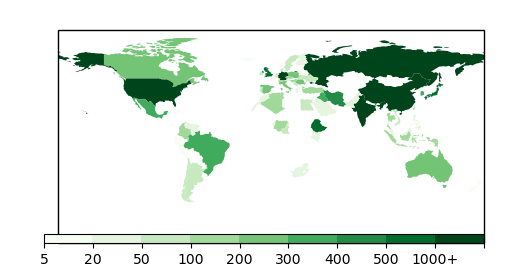

 Psi4, open-source quantum chemistry
Psi4, open-source quantum chemistry

 CheMPS2, S. Wouters' spin-adapted implementation of DMRG
CheMPS2, S. Wouters' spin-adapted implementation of DMRG

 DFTD3, S. Grimme's dispersion correction for DFT, HF, and semi-empirical
DFTD3, S. Grimme's dispersion correction for DFT, HF, and semi-empirical

 dkh, Wolf, Reiher, and Hess's Douglas-Kroll-Hess (DKH) relativistic correction
dkh, Wolf, Reiher, and Hess's Douglas-Kroll-Hess (DKH) relativistic correction

 libefp, I. Kaliman's effective fragment potential (EFP) library
libefp, I. Kaliman's effective fragment potential (EFP) library


 erd, N. Flocke and V. Lotrich's Gaussian molecular integrals for AcesIII
erd, N. Flocke and V. Lotrich's Gaussian molecular integrals for AcesIII


 gCP, S. Grimme's geometrical counterpoise correction for DFT and HF
gCP, S. Grimme's geometrical counterpoise correction for DFT and HF

 gdma, A. Stone's Gaussian distributed multipole analysis (GDMA)
gdma, A. Stone's Gaussian distributed multipole analysis (GDMA)

 Libint, E. Valeev and J. Fermann's two-body Gaussian molecular integrals
Libint, E. Valeev and J. Fermann's two-body Gaussian molecular integrals

 PCMSolver, R. Di Remigio's API for the polarizable continuum model
PCMSolver, R. Di Remigio's API for the polarizable continuum model

 simint, B. Pritchard's vectorized Obara-Saika electron repulsion integrals
simint, B. Pritchard's vectorized Obara-Saika electron repulsion integrals

 v2rdm_casscf, E. DePrince's variational 2-RDM-driven CASSCF plugin to Psi4
v2rdm_casscf, E. DePrince's variational 2-RDM-driven CASSCF plugin to Psi4
The 1.1 release (5/18/17) "inverts" the code so that it is now a Python module with a C++ core. It can be loaded into a Python script by import psi4 and called from Python with our new Python API (PsiAPI)